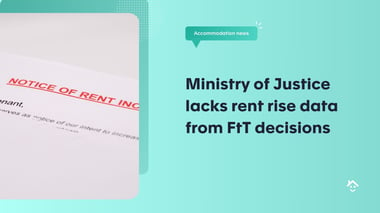Two-thirds of England’s rental homes are not energy efficient with just one third having an energy performance certificate (EPC) rating currently of C or above, researchers have found.
The news from Octane Capital highlights that the government has set the rental sector a 2028 target for all homes to have a minimum EPC rating of C or above - with the firm warning that many landlords will not have the financial resources to improve their properties.
And, it has been revealed that one council is telling private tenants in its area to inform them of any landlord renting a property with an unacceptable EPC rating.
There has been a legal requirement since 2007 for all homes to have an EPC to show prospective tenants or buyers whether the property is energy-efficient or not and from 2018, the minimum rating for a rented home has been ‘E’.
Tenants are now facing paying much higher energy bills
Jonathan Samuels, the chief executive of Octane Capital, said that many tenants are now facing much higher energy bills than they would do if they lived in an energy-efficient home - and their bills are set to climb significantly this year.
He said: “The cost for improving a property’s EPC rating to a C will be substantial and many landlords will not have the financial resources to do this thanks to an increase in stamp duty when buying a BTL home and legislative changes to tax relief.”
Mr Samuels says that the government should be encouraging buy to let investment in a bid to boost standards across the private rental sector but says there appears to have been a government campaign against landlords that has been ‘inadvertently detrimental to many tenants’.
Landlords will need to be aware that the legal process to raise the minimum EPC rating for rental homes began last week with the second reading of the Minimum Energy Performance of Buildings (No. 2) Bill in the House of Commons.
Octane says that of 5 million rental homes, just 1.6 million of them have an EPC rating of C or above.
Working with landlords to raise awareness
However, Hastings Council says it has been working with landlords there to raise awareness of the current minimum EPC standards which means properties must have a rating of E or above.
For any property below a rating of E, the landlord must make immediate improvements unless they are exempt from doing so.
This could cost landlords up to £5,000 per property and the council says it has been contacting letting agents and landlords to remind them of their legal obligations.
It is also holding online workshops, sending out information and asking residents who fear that they may be renting a property that has an EPC rating of F or G, or may not have a valid EPC, to get in touch.
‘Landlords will be aware of their EPC obligations’
The managing director of accommodation for students, Simon Thompson, said: “Most landlords will be aware of their EPC obligations and will have made their properties energy-efficient, though not all of them will appreciate that the need for a rating of C or above will be required by 2028.
“As Mr Samuels rightly points out, landlords have had to deal with government legislation that has affected profitability, plus the Covid-19 pandemic which has brought worries over rent arrears and repossession timescales.
“Responsible landlords will be working towards the new 2028 deadline for their homes, but we may see landlords leaving the sector when faced with the potential energy improvement costs.”
Rogue social housing landlords will be ‘named and shamed’
Meanwhile, the government has unveiled plans for naming and shaming rogue social housing landlords who deliver sub-standard homes for rent.
It says the move will hold landlords to account and are part of new reforms to the rental sector that have been unveiled this week.
The aim is to highlight those landlords who fail to provide safe and habitable homes and will include those who breach consumer standards that have been laid down by the Regulator of Social Housing, or where a finding of ‘severe maladministration’ has been found against a landlord by the Housing Ombudsman.
Shaming rogue landlords on social media channels
Along with naming and shaming rogue landlords on social media channels and on the government’s website, the reforms will also see the establishing of a ‘resident panel’ to enable social housing tenants to be heard by the government ‘directly’.
This will see 250 people in England being invited to discuss their experiences, the Department for Levelling Up, Housing and Communities (DLUHC) has announced.
Eddies Hughes, the Minister for Social Housing, said: "Everyone in this country deserves to live in a safe and decent home."
He added that it is unacceptable that tenants should have mould on walls or have water dripping from their ceiling.
Tougher rules on social housing landlords
Now draft legislation will be published that will lead to tougher rules on social housing landlords for failing to meet acceptable living standards.
Mr Hughes added: "This package will help to deliver on our commitment in the Levelling Up White Paper to halve the number of non-decent rented homes by 2030."
The government has also unveiled plans to carry out a nationwide survey that will see 5,000 tenants being asked to share their opinions on their landlord services.
The purpose of the survey is to monitor the impact of the upcoming reforms.




